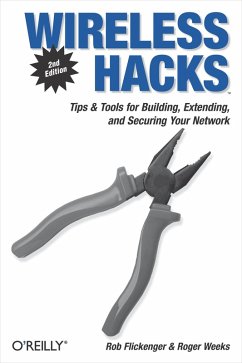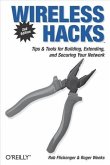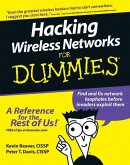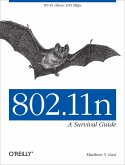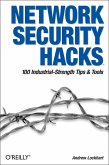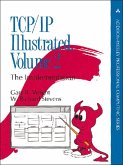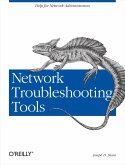The popularity of wireless networking has grown exponentially over the past few years, despite a general downward trend in the telecommunications industry. More and more computers and users worldwide communicate via radio waves every day, cutting the tethers of the cabled network both at home and at work.Wireless technology changes not only the way we talk to our devices, but also what we ask them to do. With greater flexibility, broader range, and increased mobility, wireless networks let us live, work, and think differently. Wireless networks also open up a vast range of tasty new hack possibilities, from fine-tuning network frequencies to hot-rodding handhelds.The second edition of Wireless Hacks, co-authored by Rob Flickenger and Roger Weeks, brings readers more of the practical tips and tricks that made the first edition a runaway hit, selling nearly 30,000 copies. Completely revised and updated, this version includes over 30 brand new hacks, major overhauls of over 30 more, and timely adjustments and touchups to dozens of other hacks introduced in the first edition. From passive network scanning to aligning long-distance antennas, beefing up wireless network security, and beyond, Wireless Hacks answers real-life networking needs with direct solutions.Flickenger and Weeks both have extensive experience in systems and network administration, and share a passion for making wireless more broadly available. The authors include detailed coverage for important new changes in specifications and in hardware and software, and they delve deep into cellular and Bluetooth technologies.Whether you need your wireless network to extend to the edge of your desk, fit into your backpack, or cross county lines, the proven techniques in Wireless Hacks will show you how to get the coverage and functionality you're looking for.
Dieser Download kann aus rechtlichen Gründen nur mit Rechnungsadresse in A, B, BG, CY, CZ, D, DK, EW, E, FIN, F, GR, HR, H, IRL, I, LT, L, LR, M, NL, PL, P, R, S, SLO, SK ausgeliefert werden.

